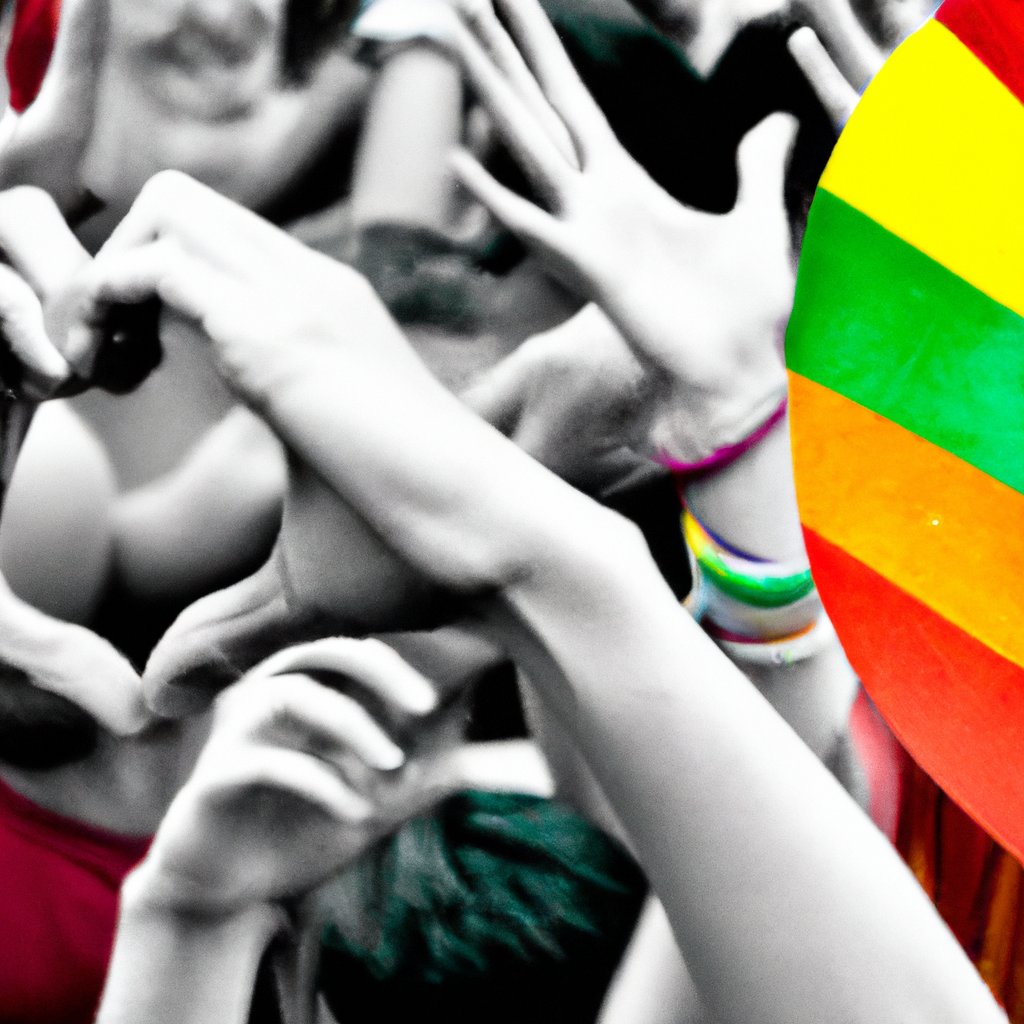
In this article, we will explore the topic of internalized homophobia and its impact on your dating life. Discovering and accepting your sexuality is a personal journey, but sometimes societal pressures and preconceived notions can seep into our own perception of ourselves. If you find that internalized homophobia is influencing your dating experiences, it’s important to address and confront these feelings in order to create a healthier and more fulfilling romantic life. So, let’s unpack this issue together and discover strategies to overcome and navigate through the challenges it may bring.
Overcoming Internalized Homophobia
Understanding Internalized Homophobia
Defining internalized homophobia
Internalized homophobia refers to the self-directed negative attitudes, beliefs, and feelings that an individual holds towards their own homosexuality or same-sex attraction. It is a result of societal heteronormativity and can manifest in various ways, including shame, guilt, fear, and internalized stereotypes and prejudices against same-sex relationships.
Recognizing the impact on dating life
Internalized homophobia can have a significant impact on an individual’s dating life. It may lead to self-sabotaging behaviors, difficulty in forming intimate connections, and fear of being out and authentic in relationships. Understanding the ways in which internalized homophobia affects your dating life is crucial in order to address and overcome these challenges.
Identifying and Acknowledging Personal Biases
Reflecting on upbringing and social conditioning
To begin addressing internalized homophobia, it is important to reflect on your upbringing and the social conditioning that may have influenced your beliefs and attitudes towards same-sex relationships. Consider the messages you received from your family, religious or cultural background, and society as a whole. Recognizing and acknowledging these biases is the first step towards personal growth and healing.
Examining internalized beliefs about same-sex relationships
Take the time to examine your internalized beliefs about same-sex relationships. Question whether they are based on personal experience, societal stereotypes, or fear. It is important to challenge and debunk any negative assumptions or prejudices you may hold. Educate yourself about the diversity and complexity of same-sex relationships, allowing for a more accurate and inclusive understanding.

Addressing The Impact Of Internalized Homophobia
Building Self-Acceptance and Self-Love
Embracing your identity
Embracing and accepting your own sexual orientation is a crucial step towards overcoming internalized homophobia. Understand that your sexual orientation is a natural and beautiful aspect of who you are. Surround yourself with supportive communities, literature, and resources that celebrate and affirm diverse sexual orientations. Celebrate and embrace your identity without shame or hesitation.
Cultivating positive affirmations
Practice self-affirmations and positive self-talk to counteract the negative beliefs and emotions associated with internalized homophobia. Remind yourself of your worth, beauty, and the validity of your same-sex attractions. Replace self-critical thoughts with positive and empowering statements. With time and consistent practice, these affirmations will help reshape your mindset and boost your self-esteem.
Working on self-esteem
Building self-esteem is crucial in overcoming internalized homophobia. Engage in activities that promote self-care and self-worth. Surround yourself with people who uplift and support you. Engaging in therapy or counseling can also be beneficial in working on your self-esteem, providing you with tools and techniques to challenge negative self-perceptions and foster self-acceptance.
Challenging Stereotypes and Negative Assumptions
Questioning societal norms and expectations
Challenge societal norms and expectations surrounding same-sex relationships. Recognize that these norms are often rooted in heteronormativity and can perpetuate harmful stereotypes and prejudices. Reframe your understanding of what a healthy and fulfilling relationship looks like. Normalize and value diverse relationship dynamics and avoid making assumptions based on societal expectations.
Educating yourself about LGBTQ+ history and achievements
Educate yourself about the rich history, contributions, and achievements of the LGBTQ+ community. By familiarizing yourself with LGBTQ+ icons, activists, and milestones, you can challenge internalized homophobia based on misconceptions or lack of knowledge. Understanding the struggles and triumphs of those who have come before you can empower and inspire you on your own journey.
Surrounding yourself with diverse role models
Surround yourself with diverse role models within the LGBTQ+ community. Seek out individuals who embody authenticity, self-acceptance, and resilience. Having diverse role models who have overcome internalized homophobia and built healthy relationships can serve as a source of inspiration and guidance. Their stories can remind you that it is possible to break free from the constraints of internalized homophobia.

Seeking Support
Engaging with LGBTQ+ communities
Engage with LGBTQ+ communities both online and offline. Join support groups, attend LGBTQ+ events, and participate in activities that allow you to connect with like-minded individuals. Sharing experiences, insights, and struggles within a supportive community can help alleviate feelings of isolation, provide guidance, and foster a sense of belonging.
Joining support groups or therapy
Consider joining support groups specifically designed to address internalized homophobia and its impact on dating life. These groups provide a safe space for individuals to share their experiences, receive support, and learn coping strategies. Additionally, therapy or counseling can offer valuable tools and techniques to address and overcome the challenges posed by internalized homophobia.
Finding understanding friends and allies
Seek out understanding friends and allies who accept and support your sexual orientation. Surrounding yourself with individuals who are knowledgeable about LGBTQ+ issues and who are empathetic towards your experiences can create a strong support network. These friends and allies can provide emotional support, offer a listening ear, and help challenge any remaining internalized homophobia.
Overcoming Fear of Rejection
Addressing anxieties related to coming out
One common fear associated with internalized homophobia is the fear of rejection. Addressing anxieties related to coming out is essential for personal growth and forming genuine connections. Start by coming out to trusted friends or family members who are likely to be supportive. Gradually expanding your support system can help build resilience and reduce fear of rejection.
Developing coping mechanisms for rejection
Developing coping mechanisms for potential rejection is important in overcoming internalized homophobia. Recognize and acknowledge that rejection is a possibility, but it does not define your worth or the validity of your sexual orientation. Build a strong support system of friends and allies who can provide emotional support during challenging times. Engage in self-care activities that help you heal and recover from any potential setbacks.
Focusing on building a strong support system
Building a strong support system is crucial in overcoming the fear of rejection. Surround yourself with individuals who uplift and support you unconditionally. Seek out mentors or LGBTQ+ individuals who have faced similar challenges and have successfully navigated the complexities of dating and relationships. Cultivate relationships with people who encourage and celebrate your authentic self.

Communicating Openly and Honestly
Opening up about internalized homophobia with potential partners
When entering into new relationships, it is important to open up and communicate honestly about your journey with internalized homophobia. This vulnerability can foster a deeper connection and allow your partner to better understand your experiences and support you throughout your journey. Clear and honest communication helps create a strong foundation built on trust and mutual understanding.
Discussing boundaries and expectations
Having open conversations about boundaries and expectations is essential in any relationship. Discuss how internalized homophobia may influence your thoughts, feelings, and behaviors, and work together to establish healthy boundaries and expectations. This ensures that both partners feel respected and supported while navigating the complexities of internalized homophobia within the relationship.
Sharing personal growth journey
Share your personal growth journey with your partner. Provide insights into the progress you have made, the challenges you have faced, and the goals you are working towards. Sharing your journey allows your partner to be an active participant in your growth and offers an opportunity for them to provide support and encouragement along the way.
Taking Time for Self-Exploration
Getting to know oneself beyond sexual orientation
Take the time to explore and get to know yourself beyond your sexual orientation. Engage in activities that bring you joy and fulfillment. Discover your passions, interests, and values. Self-exploration allows you to build a strong sense of self that extends beyond your sexual orientation, empowering you to form healthy and authentic relationships.
Identifying personal values and relationship goals
Identify your personal values and relationship goals. Reflect on what is important to you in a relationship, such as trust, communication, and compatibility. Understanding your values and relationship goals helps you make conscious decisions about who you choose to date and ensures that your relationships align with your authentic self.
Allowing space for growth and self-discovery
Allow yourself space and time for growth and self-discovery. Understand that overcoming internalized homophobia is a journey that requires patience and self-compassion. Embrace the process of self-discovery and be open to learning, evolving, and making mistakes along the way. By allowing yourself the freedom to grow, you create opportunities for personal transformation and authentic connections.
Practicing Self-Compassion
Treating oneself with kindness and understanding
Practice self-compassion throughout your journey of overcoming internalized homophobia. Treat yourself with kindness, understanding, and patience. Acknowledge that it is normal to have setbacks and moments of self-doubt. Remember that self-compassion is not the absence of progress, but rather the ability to love and accept yourself unconditionally, even when facing challenges.
Forgiving past mistakes and embracing progress
Forgive yourself for any past mistakes or decisions influenced by internalized homophobia. Embrace the progress you have made and celebrate your growth. It is important to acknowledge that healing and self-acceptance are ongoing processes. By forgiving yourself and focusing on the present, you can move forward with a greater sense of self-compassion and empowerment.
Celebrating small victories along the way
Celebrate small victories along your journey of overcoming internalized homophobia. These victories may include practicing self-acceptance, challenging internalized beliefs, or forming healthy relationships. Acknowledging and celebrating these milestones reinforces positive progress and boosts your confidence. Each small victory is a step towards living a more authentic and fulfilling life.
Embracing Vulnerability and Authenticity
Letting go of fear and shame
Embrace vulnerability by letting go of fear and shame. Recognize that vulnerability allows for authentic connections to be formed. Understand that being true to yourself may involve taking risks and exposing your innermost thoughts and feelings. Let go of the fear of judgment or rejection and embrace the freedom that comes with living authentically.
Being true to oneself in relationships
Emphasize the importance of being true to yourself when forming relationships. Authenticity fosters trust, respect, and emotional intimacy. Avoid suppressing or hiding parts of yourself due to internalized homophobia. Openly express your thoughts, feelings, and desires, ensuring that your relationships are built on openness and a genuine connection.
Embracing authenticity as an empowering choice
Recognize that embracing authenticity is an empowering choice. It allows you to live a life true to your values and desires. Embracing authenticity helps break free from the constraints of internalized homophobia and creates space for genuine connections and relationships that align with your true self. By embracing authenticity, you empower yourself to live a life filled with love, acceptance, and fulfillment.
In conclusion, dealing with internalized homophobia affecting your dating life requires understanding, self-reflection, and proactive steps towards healing and self-acceptance. By challenging negative beliefs, seeking support, practicing self-compassion, and embracing vulnerability and authenticity, you can overcome internalized homophobia and cultivate meaningful and fulfilling relationships based on love and acceptance. Remember, you are deserving of love, and your sexual orientation is a beautiful part of who you are.




